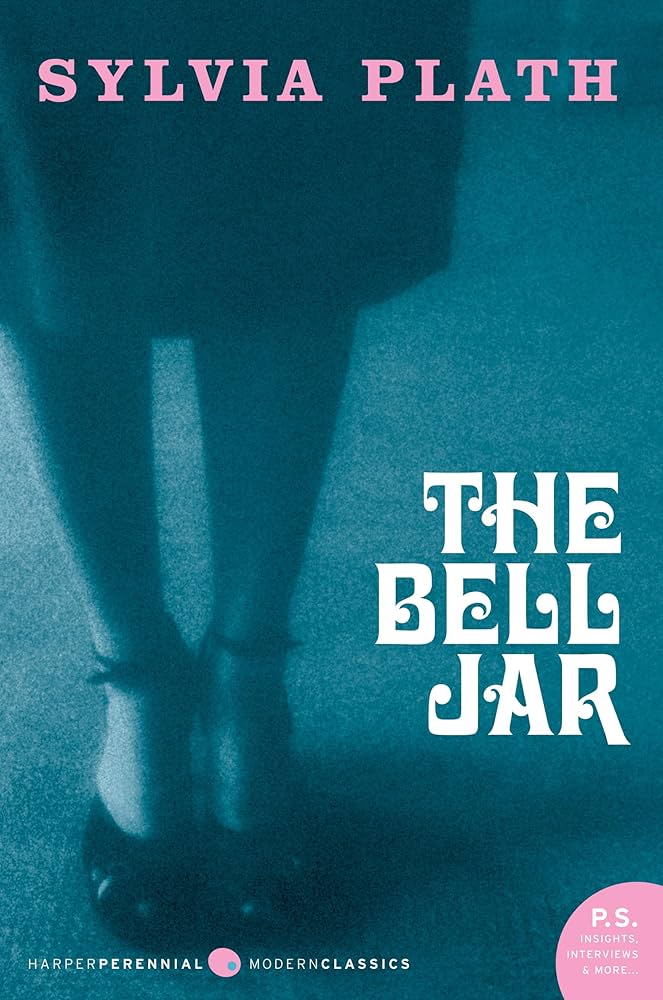Every viral TikTok and Instagram Reel about career burnout—the emotional and physical exhaustion caused by stress—and posts about ‘doing it all’ traces its roots back to Sylvia Plath’s 1963 novel “The Bell Jar.”
“The Bell Jar,” follows Esther Greenwood, a young woman who wins a prestigious internship in New York. As her time goes on, the expectations placed on her elicit pressure to be perfect in a world that limits her choices. Struggling to gain back her courage and ambition, Esther’s mental health deteriorates, leading to hospitalization. Her struggle to recover becomes a raw and emotional search for identity that many women in today’s modern society can relate to.
In modern society, women and girls of all ages face burnout. In today’s digital culture, feminism is a word that seems daunting to hear about. The pressure to constantly “perform” empowerment online – to post, to prove, to participate – often results in emotional exhaustion. Ultimately, digital culture broadens the division between working women and homemakers, creating a one way space for women that can cause confusion. In every woman’s world, there is a different form of feminism. However, as a society, we have chosen to make feminism a way to diminish other women who may not be as career-focused in the modern world. After “The Bell Jar” was released, second-wave feminism was occurring, with women focusing on issues such as workplace inequality, reproductive rights, and breaking out of restrictive gender roles. Today, society increasingly divides women into working professionals and non-employed homemakers, although feminism has become far more intersectional.
In “The Bell Jar,” Esther breaks because of the pressure being put on her at such a young age. Her paralysis mirrors many women today who are experiencing higher rates of burnout than men. According to the Harvard Business Review (Harvard Business Review WebPage), “42% of women and 35% of men in corporate America have felt burned out in the last few months. One of three women surveyed said they have considered downshifting or leaving the workforce altogether.” Not only in the 21st century, women in novels continue to face constant career pressure, forcing them to “burn out.”
Along with the constant pressure in careers, women juggle career pressure with domestic expectations. The idea that a woman should have a career but also needs to be a mother and have a family puts a constant toll on women. According to the European Institute for Gender Equality (European Institute WebPage), “Although the smallest gender gaps in housework participation are among those aged 18-24 years, only 19% of young men spend an hour on cooking and housework a day, compared with 39% of young women.” Unable to figure out what they want and growing up with the idea that feminism can either be “working women” or “domestic laborers.” Just as Esther was torn between intellectual independence and societal expectations of femininity, women today grow up internalizing the belief that they need to succeed in both the working world and in the domestic world.
More than 60 years after its publication, “The Bell Jar” continues to stay relevant in modern society. Esther Greenwood’s fall into burnout and identity crisis mirrors the silent struggles that are faced by countless women today who live under the pressure to do it all — to be successful, nurturing and composed. Perfection in a woman’s world seems unachievable. However, Plath’s novel offers a quiet hope, expressing that women can choose what they want to be without the idea of perfection daunting over them. With women who are in college, social media and society, in general, puts a very daunting focus on career choices, life-styles, and other crucial life situations, leading women to become very vulnerable and confused. Yet, reading “The Bell Jar” can offer insight into a women’s world and lead them to become more confident in who they are and what they want, instead of following society’s guidelines.
As we continue to grow, we should accept each woman for themselves, whether they want to be part of a working or domestic world. We should understand and show compassion for women in growing in the society we live in today. “The Bell Jar” captures not only the fear women face, but the enduring strength women have.









